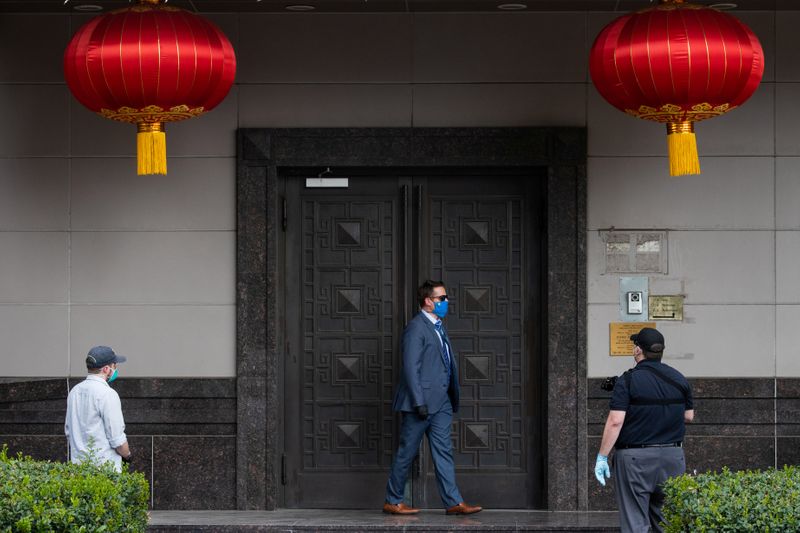By Mark Hosenball
WASHINGTON (Reuters) - China's consulate in Houston had long been on the Federal Bureau of Investigation's radar as a base for Chinese efforts to steal U.S. intellectual property, the U.S. Justice Department's top national security official said on Wednesday.
In a discussion presented by a Washington think tank, John Demers, the Assistant U.S. Attorney General for National Security, said that Houston was "not chosen at random" when the administration of President Donald Trump last month moved to shut down the consulate.
Demers told the Center for Strategic and International Studies that the U.S. government's move to close the consulate was intended to disrupt "what we had been tracking for some time." He was aware of 50 instances in 30 different U.S. cities where similar industrial and intellectual property espionage for China's benefit had recently been reported. Houston was just the "tip of the iceberg," he said.
Demers said a major U.S. government concern leading to recent moves to curb use of China's TikTok app was that Americans are giving the app access to sensitive personal data, sometimes including personal contact lists and location data.
The use of technology manufactured by the Chinese giant Huawei in the development and building of U.S. 5G data and telephone networks would leave Americans open to even more exposure of their data, which is why the Trump administration has also launched a "tremendous effort" to convince U.S. allies in Europe and Asia to be wary and back away from allowing Chinese-made equipment into their new networks, Demers said.

He added that more U.S. criminal indictments alleging Chinese involvement in computer hacking are to be expected during the course of 2020. The Justice Department was re-assigning prosecutors to work on Chinese-related prosecutions, he said.